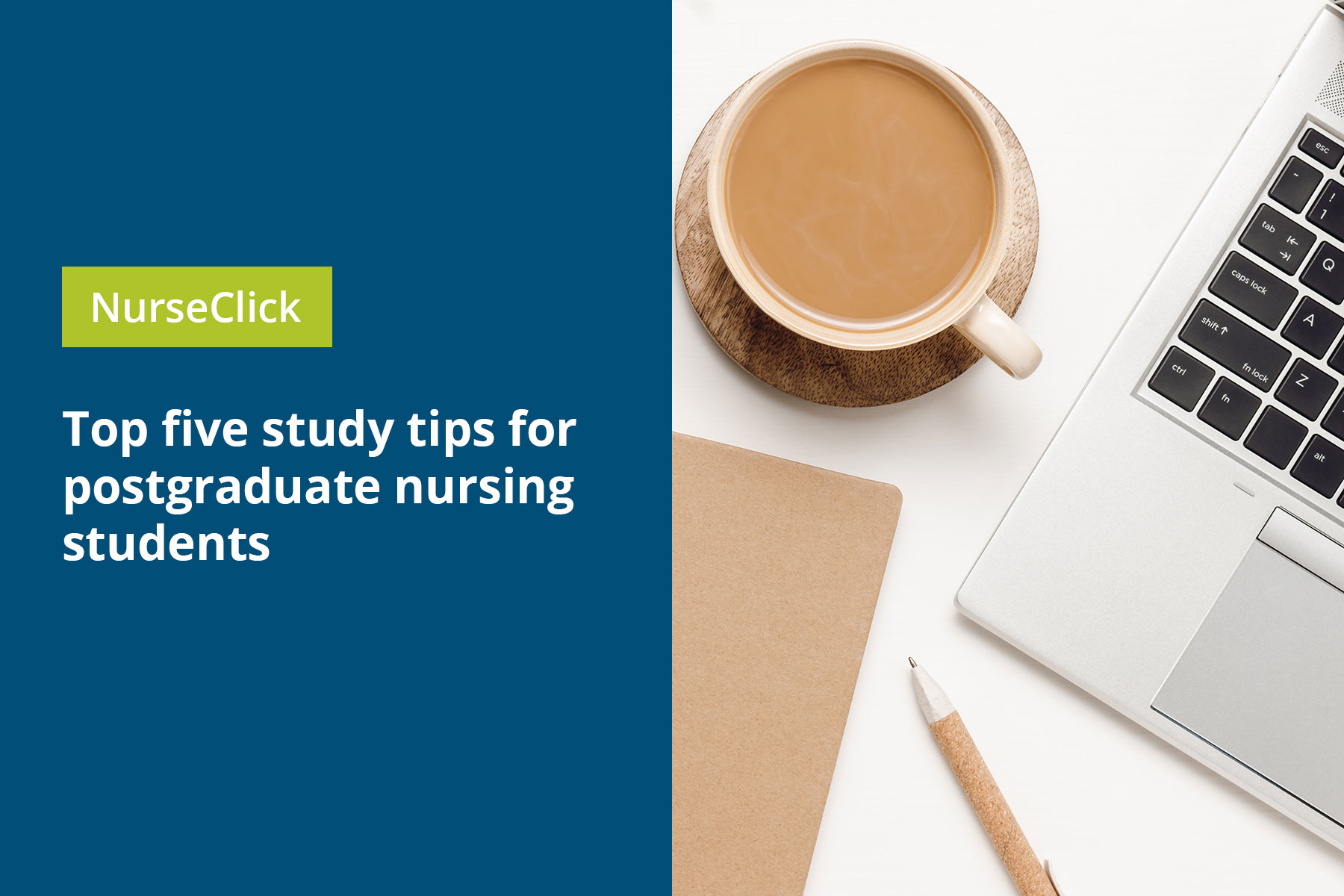Postgraduate study is your chance to specialise in what you’re most passionate about, take your career to the next level, and step into leadership roles. But let’s be honest—balancing study with the demands of a nursing career isn’t easy. Long shifts, night duty, and the physical and emotional challenges of the job can make it tough. Add personal commitments and the need to prioritise self-care, and it’s no wonder postgraduate study can feel overwhelming.
Don’t worry—we’ve got you covered. These five essential study tips are designed specifically for nursing professionals like you. They’ll help you stay organised, manage your time effectively, and keep your motivation high. With the right strategies, you can juggle study, work, and personal commitments while setting yourself up for success.
1. Optimise your study space
Your study environment plays a pivotal role in your ability to concentrate and absorb information. A clutter-free, well-lit, and ergonomic workspace can enhance productivity and focus. Here are some tips for creating an ideal study zone:
- Declutter regularly
Minimise distractions and maintain a clean workspace. - Ensure proper lighting
Reduce eye strain by opting for natural light where possible. - Set up your workspace ergonomically
Adjust your chair so your feet rest flat on the floor, and use a cushion or rolled towel for lower back support if needed. Position your desk so your wrists remain straight while typing, and ensure your screen is at eye level to avoid neck strain. For more tips, visit Safe Work Australia’s Ergonomics Resources. - Personalise your space
Add elements like plants, inspirational quotes, or a calming colour scheme to create a positive and motivating atmosphere.
2. Plan your time and stay on track
Effective time management is key to balancing responsibilities and avoiding procrastination. Start by setting SMART goals (Specific, Measurable, Achievable, Relevant, Time-bound) and breaking them into smaller tasks. Next, create a structured study schedule:
- Study efficiently
Use techniques like the Pomodoro Method—study for 25–50 minutes, followed by short breaks. After four cycles, take a longer break. - Set clear deadlines
Include deadlines for tasks to keep yourself motivated and on track. - Prioritise wisely
Tackle the most challenging tasks first, especially when your mind is freshest.
3. Stay motivated
Motivation is the driving force behind consistent and effective study habits. To stay motivated:
- Create a reward system
Treat yourself after completing tasks, whether it’s a break, a snack, or an episode of your favourite show. - Focus on your ‘why’
Remind yourself of your goals, whether they’re career aspirations, personal achievements, or academic excellence. - Visualise success
Imagine yourself reaching your goals to reinforce your commitment and determination.
4. Manage stress effectively
Stress is a natural part of academic life, but managing it can significantly improve your performance and wellbeing. Try these strategies:
- Exercise regularly
Release mood-boosting endorphins and relieve tension. - Practise mindfulness
Enhance focus and reduce anxiety through meditation, deep breathing, or yoga. - Prioritise sleep
Aim for 7-9 hours per night to maintain cognitive function and resilience. - Be kind to yourself
Acknowledge your progress and celebrate small victories rather than striving for unattainable perfection.
5. Seek help and build your network
No one succeeds alone, and having a support system can make all the difference. Here’s how to stay connected:
- Lean on your support system
Share your concerns with trusted friends, family, or mentors to reduce stress and gain new perspectives when feeling overwhelmed. - Seek academic guidance
If you’re studying with the Australian College of Nursing (ACN), reach out to subject matter experts, unit coordinators, tutors, or markers for guidance and assistance with your studies. - Connect with peers
Join virtual rooms to collaborate with like-minded individuals who share your interests and goals. - Build your network with ACN
Engage with colleagues from diverse career stages, specialties, and work settings, and access career mentoring through The Buzz—ACN’s online member engagement platform.
Start your postgrad journey with ACN
By incorporating these study tips, you can effectively manage your time, stay motivated, and handle stress, building a strong foundation for academic and personal success.
If you’re inspired to take the next step in your nursing career, an ACN Graduate Certificate is the perfect choice. Unlike universities, ACN focuses solely on nursing education, offering courses written by expert nurses for nurses. This means the education you receive is not only practical but also highly relevant to your career and the real-world challenges you face in health care.
ACN offers a diverse range of 20 postgraduate courses that allow you to specialise in areas you’re passionate about, deepen your clinical expertise, and connect with a supportive nursing community. With flexible, part-time, and online study options, ACN makes it easier to balance your work, life, and education commitments.
ACN Graduate Certificates
Take the next step toward achieving your professional goals with ACN. Explore our courses today to discover how you can advance your career and make a greater impact in nursing. For more details, visit ACN Graduate Certificates.
Author: Kirsten Masters MACN
ACN Nurse Educator – Leadership and Management Graduate Certificate
RN, MACN, Cert IV TAE, BNg, GradCertEd, MNg(CritCare)
Kirsten brings over 10 years of nursing experience, with a distinguished background working in major tertiary hospitals in Sydney, specialising in Emergency Departments and Intensive Care Units. Her expertise has even been featured on reruns of Kings Cross ER. With a deep passion for Emergency Nursing, Kirsten thrives in its fast-paced, dynamic environment, which continuously fuels her commitment to the field.
Transitioning to education, Kirsten pursued a Master’s degree in Nursing, majoring in Critical Care, and has since earned a Certificate IV in Training and Assessment. Most recently, she completed a Graduate Certificate in Education. Her teaching experience spans roles such as marker, clinical facilitator, and educator within both the VET sector and the Bachelor of Nursing program at various institutions.
Kirsten possesses a deep understanding of both nursing practice and teaching techniques, creating a learning environment that fosters critical thinking whilst endeavouring to bridge the gap between theory and real-world application. She hopes she can empower nurses to provide the highest standard of care to their patients.

























